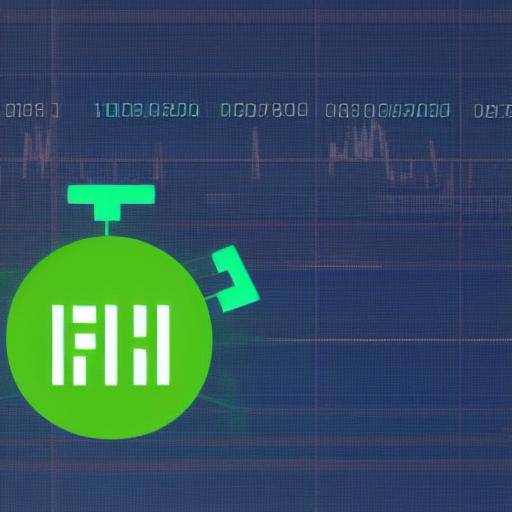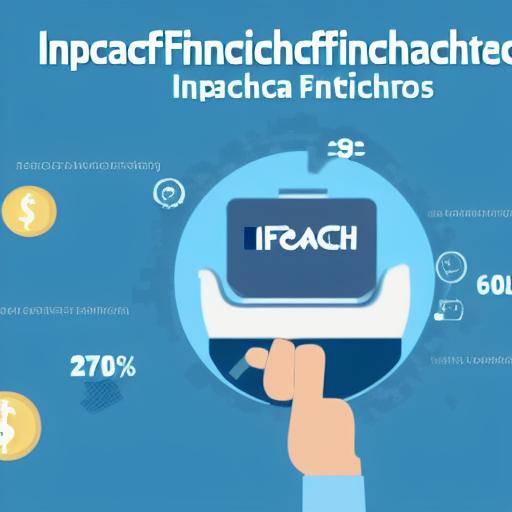
Introduction
In the digital era, technology has become a key tool for improving efficiency and having greater control of our personal finances. With the constant increase in applications designed to facilitate spending management and monitoring, it is essential to understand how to use these tools effectively. In this article, we will explore how applications can be used to monitor and avoid unnecessary expenses, providing practical advice and recommendations to maximize their use. We will also address the importance of technology in personal efficiency and financial control, highlighting its impact on responsible financial decision-making.
History and Background
Origins of Financial Applications
The emergence of applications designed for financial monitoring and management dates back to the beginning of the digital era. As mobile technology and online connectivity expanded, the first tools that enabled users to manage their finances from the comfort of their devices emerged. These applications soon became allies for those who sought more efficient ways to control their expenses and income.
Evolution of Financial Applications
Over time, financial applications have experienced significant evolution in terms of functionality, usability and security. New technologies, such as artificial intelligence and automatic learning, have been integrated into these applications, providing users with advanced capabilities for cost analysis and prediction. Furthermore, interoperability with banking and payment systems has improved data integration, providing a more comprehensive view of the financial situation of users.
Significant Milestones and Developments
Over the years, various milestones and significant developments have been achieved in the area of financial applications. The massive adoption of these tools by users has marked a radical change in the way people manage their finances. In addition, the implementation of advanced security measures has strengthened the trust of users, allowing them to have greater control over the security of their financial data.
Deep analysis
The use of applications for financial monitoring has shown significant impacts on cost efficiency and control. According to recent data, users who use these tools tend to identify and eliminate unnecessary costs more effectively, allowing them to maximize their income potential. Furthermore, the ability to establish budgets and receive personalized alerts contributes to more efficient management of financial resources.
Comprehensive analysis
Benefits of Financial Applications
Financial applications offer a wide range of benefits, from simplifying personal finance management to real-time monitoring of transactions and expenses. The ability to visualize detailed graphics and analysis provides a better understanding of spending habits, which in turn facilitates more informed financial decision-making. In addition, process automation such as cost categorization and reporting streamlines the financial control process.
Current Challenges and Trends
Despite its benefits, financial applications also face challenges, such as data security and user privacy management. In response to these challenges, current trends focus on the development of safer tools that are compatible with data protection regulations. In addition, integration with financial advisory services and property planning shows a clear trend towards a more comprehensive view of the financial health of the user.
In addition, the emergence of applications using emerging technologies, such as blockchain, signals a shift towards more decentralized and secure solutions.
Comparative review
Comparison between Applications
Within the broad spectrum of financial applications, we find a variety of approaches and functionalities. Some applications focus on creating custom budgets and alerts, while others offer more advanced predictive analysis tools and recommendations to optimize spending. Understanding the differences between these applications is essential to choosing the one that best suits individual financial needs.
Synergies between Technology, Efficiency and Control
The synergy between technology, efficiency and control is manifested in the use of financial applications to optimize cost management. Technology allows greater efficiency by simplifying tedious tasks, such as cost classification and generating automated reports. At the same time, it provides greater control by offering tools to set spending limits and monitor financial targets.
Practical Tips and Recommendations
Maximizing the Use of Financial Applications
To make the most of financial applications, clear financial targets and cost tracking tools are essential. Establishing expenditure categories and assigning budgets to each can be an effective strategy to control and avoid unnecessary costs. In addition, setting up custom alerts to receive notifications about unusual transactions or overexpenditures can help maintain greater control.
Future Tips:
- Record all expenses, as low as they may seem, to have a complete view of consumption habits.
- Regularly review the reports and analysis provided by the application to identify areas of improvement in financial management.
- Take advantage of the automatic saving features that some applications offer, by assigning a portion of your income to an emergency fund or long-term savings.
Perspectives and Expert Reviews
Importance of Technology in Financial Administration
Financial experts highlight the importance of technology as a key tool for effective financial management. The ability to access detailed information on spending habits and real-time financial movements gives users a clear perspective on their financial situation. In addition, advanced analysis tools allow to identify trends and patterns, facilitating informed decision-making.
Case studies and practical applications
Examples of Success in the Use of Financial Applications
Various cases of study show the positive impact of the use of financial applications in cost management. From individuals who managed to significantly reduce their unnecessary costs to entrepreneurs who optimized their business management, the effective application of these tools has generated tangible results. These cases demonstrate that the combination of technology, efficiency and control can lead to significant change in personal and business financial health.
Future Trends and Predictions
Continuous evolution of Financial Applications
Financial applications are expected to continue to evolve, incorporating innovative technologies to provide even more efficient and secure financial management. The integration of predictive analysis functionalities and personalized recommendations promises to improve the user's ability to prevent unnecessary expenses and optimize their financial situation. In addition, the trend towards greater customization and adaptability of applications will lead to more responsive solutions to individual needs.
Conclusions and FAQs
Conclusion
The use of applications to monitor and avoid unnecessary expenses has become a fundamental practice for those seeking to manage their finances with efficiency and control. The combination of technology, advanced analysis and management tools has proven to be an effective strategy for optimizing financial decision-making, maximizing income and reducing overflow costs.
Frequently asked questions
What are the key features to consider when choosing a financ application?
- In choosing a financial application, it is important to consider data security, ease of use, analysis capacity and integration with financial institutions.
How can a financial application improve efficiency in cost management?
- A financial application can improve efficiency by providing cost categorization tools, budgeting and receiving personalized alerts, which facilitates informed financial decision-making.
Is it safe to link bank accounts to financial applications?
- Many financial applications use secure encryption technologies to protect the financial information of the user by linking bank accounts. It is important to verify that the application complies with data security and protection regulations.
How can financial applications help avoid unnecessary expenses?
- Financial applications can help avoid unnecessary costs by providing a clear view of spending patterns, setting limits and alerts, and providing recommendations to optimize financial management.
What role does technology play in personal financial efficiency?
- Technology plays a key role in providing tools for streamlining financial tasks, analyzing real-time data and providing a comprehensive view of the personal financial situation, which improves efficiency in financial decision-making.
What are future trends in financial applications in terms of control and efficiency?
- Future trends in financial applications focus on the use of predictive analysis, personalized recommendations and greater integration with financial services, in order to provide solutions that are more adaptable to individual needs.
Summary
Financial applications are an invaluable tool for those seeking efficient financial management and accurate control of their expenses. Leveraging technology to monitor and avoid unnecessary costs provides significant benefits in financial decision-making and resource optimization. By understanding the role of technology in efficiency and financial control, users can maximize the potential of these tools to improve their financial health.






















































